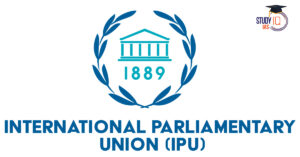Table of Contents
33 scientists will be awarded the Rashtriya Vigyan Puraskar (RVP), marking the government’s new approach to recognizing scientific achievements in India. This replaces the older Shanti Swarup Bhatnagar (SSB) awards, which were conferred by the Council of Scientific and Industrial Research (CSIR).
Rashtriya Vigyan Puraskar (RVP): Background and Rationale
- The Rashtriya Vigyan Puraskar (RVP) awards were established following a conclusion by the Ministry of Home Affairs and heads of scientific departments in 2022.
- They noted the necessity to streamline numerous individual departmental awards into more prestigious national awards.
- Distinguished scientists have traditionally received the Padma awards.
- The original SSB awards aimed to encourage long-term research despite its often intangible and delayed impacts.
Changes in the Awards System
- Award Components: The SSB awards included a certificate, a cash prize, and additional monetary benefits.
- The RVP consists of a medal and a certificate.
- Award Categories:
- Vigyan Yuva-SSB: For scientists under 45.
- Vigyan Shri: Recognizing significant contributions in science.
- Vigyan Ratna: For distinguished contributions over a scientist’s career.
- Vigyan Team: For exceptional team contributions, such as the Indian Space Research Organisation’s Chandrayaan-3 team.
Number and Scope of Awards
- Total Awards: In theory, the awards are capped at 56 annually, but this year fewer than 56 scientists will be awarded.
- Field Diversity: Awardees come from various fields such as astrophysics and agriculture.
- Institutional Representation: Most awardees are from prestigious, centrally funded institutions like IITs, IISER, CSIR, and atomic energy institutions.
Challenges and Considerations
- National vs. International Recognition: While national awards are prestigious, they are not substitutes for international recognition like the Nobel Prize.
- Research Environment: Many scientists in India face challenges such as limited funding, substandard equipment, and a discouraging research environment.
- Policy Recommendations: To truly support scientific progress, the government should focus on increasing budgetary allocations for scientific research and improving research infrastructure, rather than merely providing awards.
Conclusion
- The new RVP awards aim to streamline and elevate the recognition of scientific achievements in India.
- However, addressing the fundamental issues of funding, infrastructure, and support for scientific research is essential for fostering an environment where Indian scientists can compete globally and achieve significant breakthroughs.


 SAMARTH Udyog Bharat 4.0: Transforming I...
SAMARTH Udyog Bharat 4.0: Transforming I...
 BHIM 3.0 Launched by NPCI: Key Features,...
BHIM 3.0 Launched by NPCI: Key Features,...
 150th Summit of Inter-Parliamentary Unio...
150th Summit of Inter-Parliamentary Unio...





















